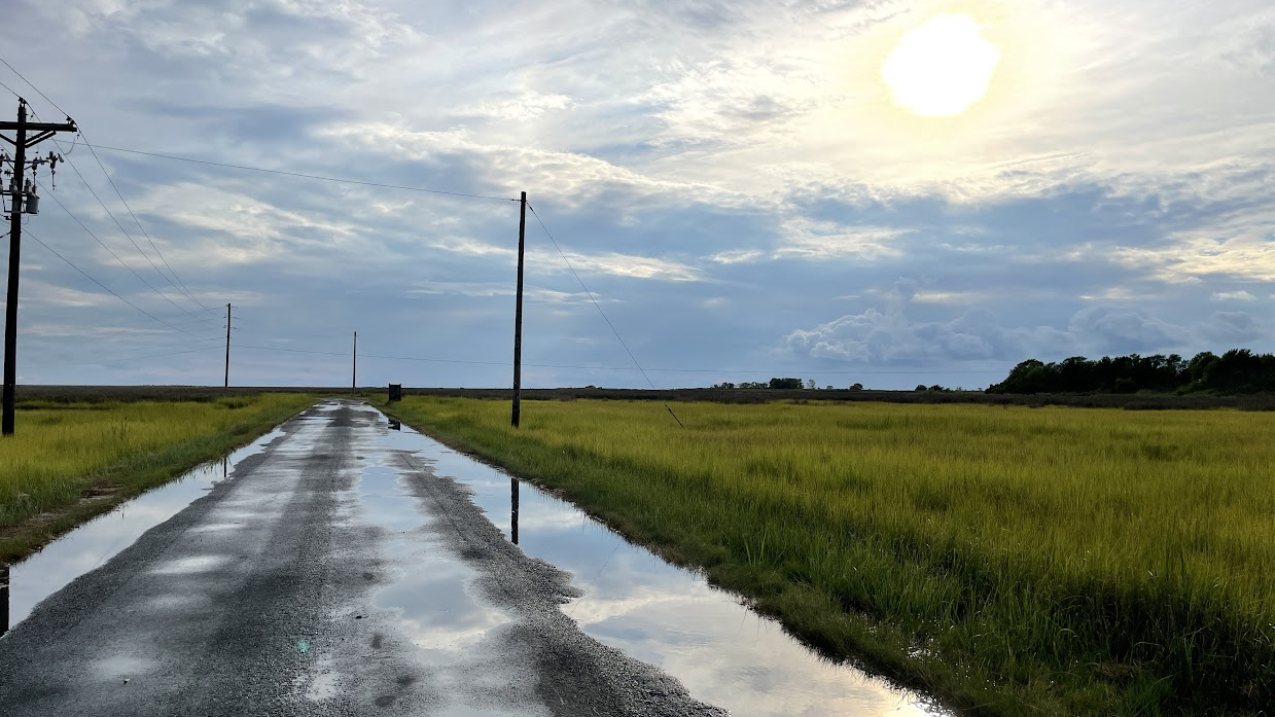
NCCOS is announcing $6.7 million in FY23 funding for 18 projects that will help facilitate informed adaptation planning and coastal management decisions that account for the effects of sea level rise; and climate change; and evaluate the use of nature-based solutions in mitigating coastal vulnerability and risk.
NCCOS is allocating $3.7M for eight new awards funded under its Effects of Sea Level Rise (ESLR) Program. $2.2 million of this funding is being awarded as part of President Biden’s Investing in America agenda under the Inflation Reduction Act (IRA), allowing NOAA to help communities prepare for, adapt to and build resilience to changing climate conditions. An additional $2.1M is being awarded to support the continuation of seven ongoing ESLR projects.
The new ESLR awards will support the development of information to enable more innovative grant applications by coastal decision makers to the National Fish and Wildlife Foundation (NFWF) National Coastal Resilience Fund (NCRF) and the Federal Emergency Management Agency (FEMA) Building Resilient Infrastructure and Communities (BRIC) program, and others where applicable.
In addition, a $960,000 investment will fund three projects led by the Cooperative Institute for Research to Operations in Hydrology (CIROH) to promote community resilience to water-related challenges.
These efforts will collectively enhance the ability of coastal communities to plan for, absorb, recover from, or more successfully adapt to flooding as a result of sea level rise.
New Awards — full list here:
ESLR Awards
- (IRA-funded) University of California, Irvine and University of Miami received $499,999 to evaluate how nature-based solutions can empower more equitable flood risk management in Los Angeles County, CA
- (IRA-funded) George Mason University, The Nature Conservancy, Resources for the Future, and Maryland Department of Natural Resources received $499,993 to evaluate flood mitigation designs under future climate scenarios to inform restoration efforts in the Chesapeake Bay region
- (IRA-funded) Oregon State University received $500,000 to assess the environmental and economic tradeoffs of different management strategies for backshore dune environments in the Pacific Northwest
- (IRA-funded) U.S. Geological Survey and University of California Santa Cruz received $324,767 to evaluate flood risk in linked coral and mangrove ecosystems in the U.S. Virgin Islands
- (IRA-funded) University of Georgia, U.S. Geological Survey, and Embry-Riddle Aeronautical University received $500,000 to model nature-based flood mitigation projects to inform holistic coastal planning in the Gulf of Mexico coast
- University of Texas at Arlington and University of Arkansas received $499,973 to evaluate how different shoreline adaptation actions perform with sea level rise and storms in California
- Oregon State University and Pacific Northwest National Laboratory received $500,000 to evaluate tradeoffs between gray and green infrastructure approaches for flood risk reduction for two estuaries in the Pacific Northwest
- University of Rhode Island and Penn State University received $360,425 to assess how nature-based solutions reduce coastal vulnerability to sea level rise while preserving ecosystem services in Rhode Island
CIROH Awards
- University of Alabama received $177,642 to develop nationally consistent coastal flood severity thresholds across the U.S.
- University of Alabama, University of Hawaii at Manoa Water Resources Research Center, and University of Hawai’i Sea Grant received $498,819 to integrate local ecological knowledge into flood modeling, communication, and response across Hawai’i
- University of Alabama and The Water Institute of the Gulf received $284,879 to develop adjusted Digital Elevation Models (DEMs) to support marsh modeling
